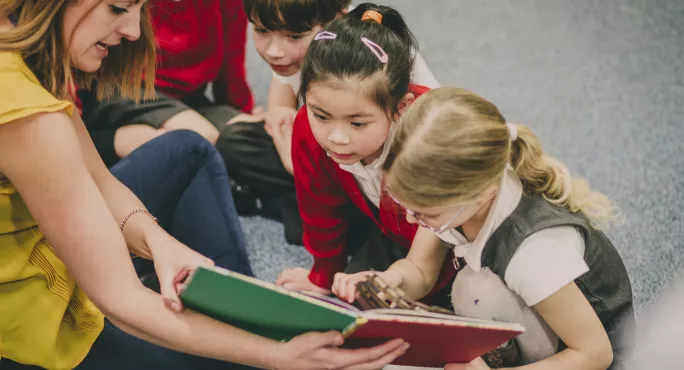‘Don’t overdo the doom’ on lockdown reading decline

Fears that children’s reading ability has declined significantly during the Covid-19 lockdown have been overstated, according to a new report.
An analysis of data from nearly 160,000 pupils found that reading scores for primary pupils have declined by the equivalent of two months of lost learning.
The cost of Covid: Teachers’ grim figures on learning loss
Exclusive: Tests reveal ‘dramatic’ GCSE learning loss
Boris Johnson: Schools to get further £300m for catch-up tutoring
The report, Words of Encouragement: Reading resilience during the pandemic, from GL Assessment, says that in secondary pupils, the decline was less severe.
Secondary school-age students’ reading ability was said to have declined by less than a month’s learning loss.
The report says that, based on GL Assessment’s “standard age score” for reading, students’ scores fell by 1.9 points in 2019-20 compared with a rise of 0.5 points in 2018-19.
But it adds: “Nonetheless, the overall picture is clear - children’s reading ability does not appear to have been significantly affected by the disruption caused by the pandemic, regardless of type of school.
“Primary schoolchildren seem to have been affected a little more than secondary school students, but not significantly.”
Crispin Chatterton, GL Assessment’s director of education, said: “It’s important we don’t overdo the doom.
“Yes, the increase in the number of students in Year 6 struggling with literacy is concerning. But given the enormous disruption education has endured over the past year, it isn’t catastrophic.
Covid and schools: The impact on reading ‘isn’t catastrophic’
“The pandemic was, after all, a once-in-a-century event. Perhaps it’s more accurate to say that, dislocating and distressing though the lockdowns were for hundreds of thousands of children and their parents, thanks to the hard work and dedication of schools and teachers, the numbers of children struggling with literacy at transition has been limited to an increase of 30,000.”
He added: “Some children were clearly affected badly by the serial lockdowns - and it’s essential that we identify and support them.
“But it’s incorrect to assume there was a mass downturn in reading ability across all age groups. Our data, which is standardised and drawn from a large student population, is highly reliable and it clearly shows that there was no such mass decline.”
Geoff Barton, general secretary of the Association of School and College Leaders, wrote in the report’s introduction: “We have seen incredible agility and resilience from everyone across the education sector throughout this period and a determination to continue ensuring that schools remain at the heart of communities as they build a future post-Covid.
“In the months ahead there will rightly be more conversations about the negative implications of the pandemic on young people and children, including the long-term impacts of what is widely being described as lost learning.
“It is important that we acknowledge and work to address that, but we must not overlook the positives that we can take from this period as we look to build for the future.”
While GL Assessment said that suggestions of widespread learning loss in reading were inaccurate, it cautioned that the stability of the data overall could mask variations at individual school or pupil level.
Teachers at Wickersley School and Sports College, in Rotherham, reported that while the better-than-expected scores at the top of the ability range kept their school’s overall reading performance high, they masked to some extent the difficulties students experienced at the lower end of the ability range. GL Assessment said it was a similar situation for all schools included in the report.
“A number of schools have told us that while the numbers of children at transition who struggle with reading haven’t increased significantly, those that do struggle may have more severe problems,” Mr Chatterton said.
Schools had “done an incredible job switching to remote learning, in many cases from a standing start, last year. And the consistency and richness of that online delivery only got better as schools became more familiar with the technology and teachers learned what worked best and what didn’t”, he added.
“But putting in place interventions for weaker readers remained challenging. Schools often found it difficult or impossible to provide the in-person, one-to-one support struggling readers may have needed.”
However, above-average ability readers seem to have thrived during lockdown. “Part of the reason could be that remote learning and the text-heavy nature of much of that instruction increased the opportunities for confident readers to burnish their skills,” said Mr Chatterton.
The report also notes that while reading recall and decoding appeared resilient, it was still unclear if this was the case for inference and comprehension.
Register with Tes and you can read two free articles every month plus you'll have access to our range of award-winning newsletters.
topics in this article



